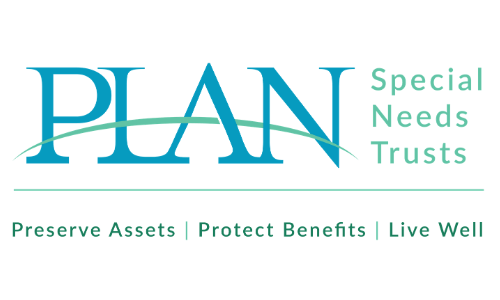Special Needs Trusts FAQs
The Importance of Financial Independence: Special Needs Trusts
Special Needs Trusts are important financial vehicles that can help you to plan for the future. Read more about Special Needs Trusts below, courtesy of PLAN of MA & RI, the exclusive trust partner of the Carroll Center for the Blind.
A special needs trust is simply a legal document. This document allows money to be set aside for a person with a disability. The trust is intended to help preserve funds for the sole benefit of the person with a disability, enhance the person’s quality of life, while protecting his or her eligibility for public benefits, such as Medicaid and Supplemental Security Income (also known as “SSI”). A 1993 federal law permitted the creation of special needs trusts. The policies that must be followed in creating and administering them are detailed by the Social Security Administration.
A special needs trust can be the right tool for a person with disabilities who has savings or expects to receive a legal settlement, an insurance payout, an inheritance, or a gift. Depositing those funds in a special needs trust can protect their eligibility for public benefits. It can also help someone who is unable to manage money.
A special needs pooled trust (SNPT) model helps those with limited assets, who may not be able to afford standalone trust set-up costs or satisfy minimum deposit and management fees. An SNPT can be the right choice for families caring for a loved one with a disability who want to be sure their disabled loved one has resources and assistance to live after the parents or other family are gone, and that those resources do not jeopardize access to public benefits; OR do not want to burden siblings or other relatives with the responsibility of managing the finances and complying with the legal rules of a special needs trust.
Also referred to as a ‘self-settled’ trust. Funds deposited come from the beneficiary. The trust is used for the sole benefit of the beneficiary. Public benefits are not impacted. There is a Medicaid payback component.
This type of trust is created and funded by someone other than the beneficiary (e.g. parent, grandparent). The trust is used for the sole benefit of the beneficiary. Public benefits are not impacted. There is no Medicaid payback component.
About PLAN of MA & RI
PLAN is a 501(c)3 non-profit organization that serves as professional trustee for over 750 beneficiaries both first-party and third-party trusts. The organization and its staff are highly experienced with trust administration and the protection of public benefits, PLAN relieves family members of these responsibilities, allowing them to focus on their relationship with their loved one.
PLAN has knowledgeable, experienced, compassionate social workers who follow the complicated and ever-changing rules of the trust and public benefits. They serve as the primary liaison with the beneficiary and family and the access point for disbursements.
In the late 1960’s the organization’s founders were parents of children with disabilities who collaborated on health care, public benefits, housing, self-insurance, and future planning. That group created an organization that established one of the first “pooled” special needs trusts in the country and ultimately led to the incorporation of PLAN in 1971. We at PLAN understand that this is a major decision and that this may require a number of calls to answer questions related to benefits and future planning related to care, finances and legal questions. We do not charge for calls. We will attempt to work with you to gain an understanding of the process and answer those questions you have or refer you to others to answer the questions we cannot answer.
For more information please visit our website (www.planofma-ri.org) or call Cynthia Calixte our enrollment specialist at 888-890-7526 x201.



